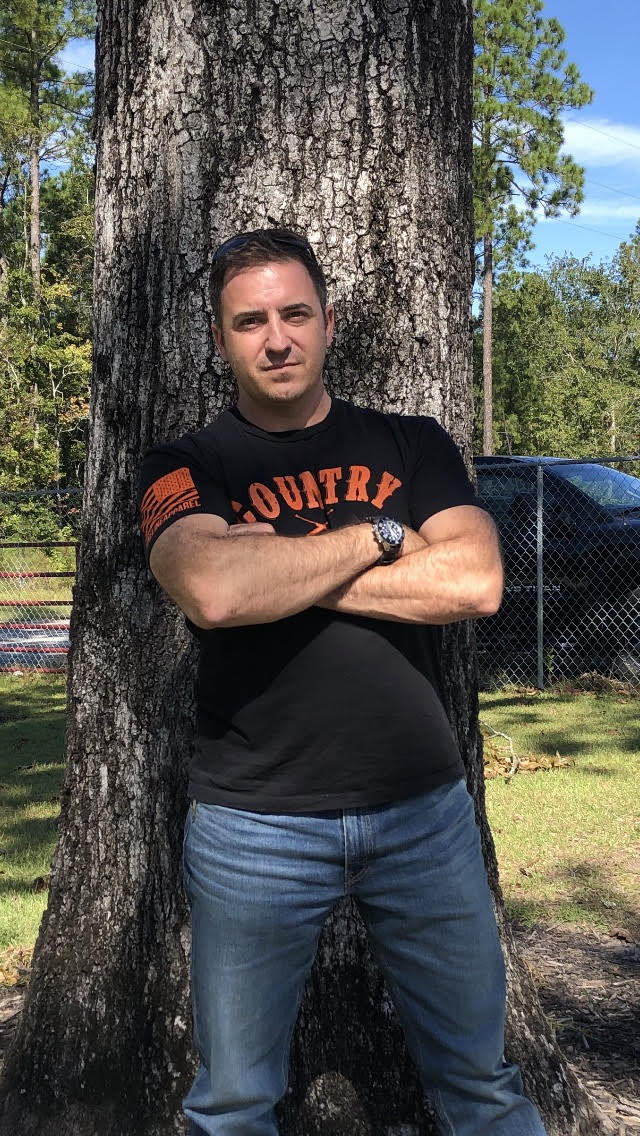SAVANNAH, Georgia — Long before Rep. Doug Collins, a Republican, launched his scorched-earth challenge against Sen. Kelly Loeffler, another Republican challenger here in Chatham County, Georgia, announced he would also be challenging an incumbent Republican member of Congress — Daniel Merritt.
Merritt, a U.S. Army officer and combat veteran, said the primary reason he decided to run came from a common concern among military families who want to see more veteran representation in elected offices up and down the ballot.
“I was doing a lot of complaining about it, and one of my close friends said, ‘Hey, you have a great resume. You were enlisted. You were an officer. You’ve been to Iraq, Afghanistan. You’ve got a great resume. Why don’t you run?’” Merritt told the Washington Examiner in front of Nine Line Apparel, the business he helped co-found with his brother, Tyler.
“My first and hardest vote I ever earned was my wife. And she’s been really supportive. And so I started running. I had no idea what I was doing. Now, I have a phenomenal campaign manager. I have a chair, a co-chair. We’ve had 300 people volunteer for us,” said Merritt, 38, a father of four.

As the alignments of both political parties changes, Georgia Republicans face an emerging force shaping their future in the Peach State: the bluing of their suburbs.
As the Republican Party nationally shifts toward conservative populism, suburban voters have also shown they’re just not quite ready to embrace full-blown liberalism. This was evident in the 2018 gubernatorial race — when Democratic candidate Stacey Abrams’s message failed to close the deal and she lost narrowly to Republican Brian Kemp.
As the parties shift, primary challenges will reveal where voter sentiments are heading. Merritt’s challenge to Rep. Buddy Carter is one such example. Carter began serving the region in 2004 in the state House and then the state Senate. He was elected to the 1st Congressional District five years ago.
Merritt is the quintessential outsider: no political experience but plenty of business and public service commitment in his DNA. “As soon as I commissioned, I deployed almost immediately as a platoon leader with the 10th Mountain Division doing a police transition team operation,” he explained of his leadership position as a 27-year-old in charge of 13,000 Iraqi security forces.
Merritt said his biggest priority is fixing the VA system, the flaws of which he says reflect the problems of all larger institutions in government. “We can’t continue to lose soldiers to suicide. We have to take care of our service members, and the system is broken,” he said.
Merritt said a lot separates him from Carter. “Firstly, service. Selfless service. I’m still a reservist. I’m a field-grade army officer — still. I have 17 years of service, so I know what it takes to serve, to put everybody else first. The other thing is we don’t know how to fail. We get it done. The other thing is having a fresh look on politics. I’m a fan of our president. I really like Donald Trump a lot. I think he came into office, and he cut through all the red tape,” he said.
His biggest challenge? Money.
“Fundraising’s been tough. Especially going against an incumbent,” he said.
“The thing is, I don’t think I’m going to need to raise a ton of money because the voter turnout in this district is going to be so small for this primary. I’m getting in front of thousands and thousands and thousands of people. I’m leveraging social media. I have partnered with somebody who I won’t name today that the world knows and who is getting behind me, and nobody wants to be associated with me until this primary is over,” he added.
Georgia Republicans will head to the primary voting booth on May 19. It is unclear how, if at all, Merritt will benefit from what looks to be an ugly intraparty battle between Collins and Loeffler in the Senate primary. But that contest certainly will give observers a hint as to which way Republican voters are breaking ahead of the November general election
